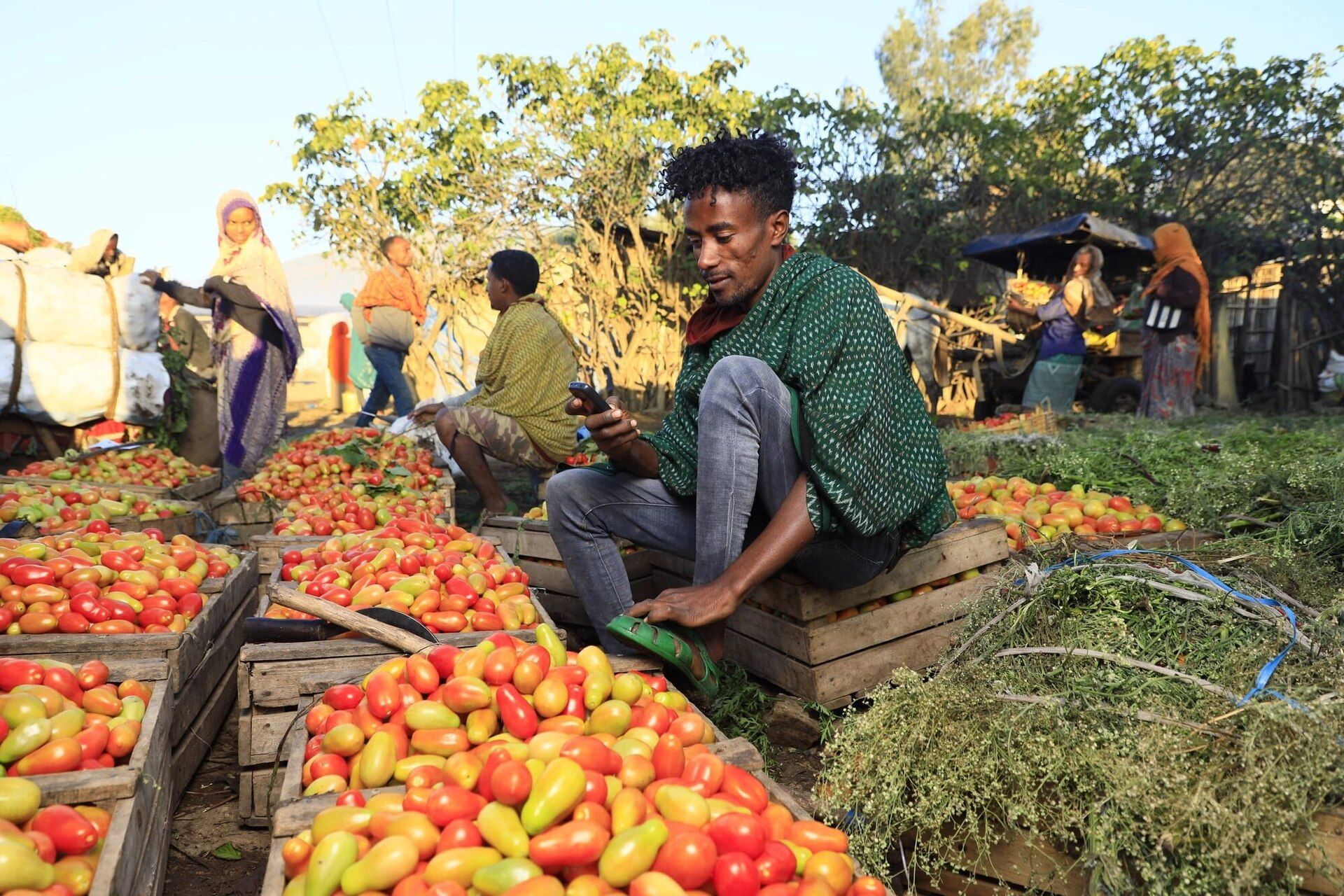
Top Stories of the Week
Auto Assemblers on Verge of Collapse as Government Slams Brakes on Imports
No Currency Swap, No Checkout: AliExpress’s Ethiopia Rollout Drags On
Private Banks in Uproar Over NBE’s Forced Merger Plan
If a 15-year-old Ethiopian Can Work, Why Can't They Open a Bank Account or Get a SIM Card Independently?
Findex 2025 and Ethiopia’s Digital Financial Leap: Momentum Without Maturity?
Shega is an integrated information, data & intelligence solution provider. We combine trusted media, proprietary datasets, and AI-powered insight to help businesses, investors, and policymakers decode complex markets like Ethiopia and act with confidence.
Tap into our research briefs, interactive data tools, and tailored advice to turn signals into strategy, or partner with us for high-impact audience-engagement campaigns. Let’s explore what we can build together.
Auto Assemblers on Verge of Collapse as Government Slams Brakes on Imports
Dozens of domestic vehicle assemblers say they are on the verge of shutting down their plants following an abrupt decision by the Ministry of Industry to prohibit the import of components used to build combustion-engine cars.
While policymakers at the Ministry aim to steer Ethiopia’s vehicle assembly industry toward electric and hybrid vehicles, plant operators argue the move is a death sentence for an industry that had only just begun to see the rewards of decades of struggle. Read more.
Revenues Ministry Welcomes New E-Data Stream State Minister
Dawit Wubishet has been appointed E-Data Stream State Minister at the Ministry of Revenues by Prime Minister Abiy Ahmed (PhD). Read more.
No Currency Swap, No Checkout: AliExpress’s Ethiopia Rollout Drags On

When AliExpress announced its entry into Ethiopia last year, many expected a new era of accessible global commerce. But one year later, shoppers are still relying on crypto prepaid cards and informal workarounds.
Local partnerships and promises of birr-based payments remain stalled amid regulatory and currency hurdles. Unlike Nigeria or Egypt, Ethiopia lacks a finalized swap deal with China, leaving consumers and local partners in limbo.
Showrooms opened. Local partnerships announced. But AliExpress’s Ethiopia rollout is stuck, caught between policy gridlocks and logistical disconnects. Read more.
Ethio Telecom Posts Over 80% Jump in Annual Pretax Profit
Ethio telecom reported a significant rise in its 2024/25 fiscal year pretax profit, fueled by network expansion and a growing customer base.
CEO Frehiwot Tamiru announced that pretax profit surged by more than 80% year-on-year, reaching around 76 billion Birr (about $550 million). Read more.
Private Banks in Uproar Over NBE’s Forced Merger Plan
Executives of private commercial banks are pushing back against a proposal by the National Bank of Ethiopia (NBE) that would force banks failing to meet a five billion Birr minimum paid-up capital requirement into mergers before the June 2026 deadline.
The requirement, introduced in an NBE directive issued in April 2021, more than doubled the previous capital threshold. Banks were granted a five-year grace period to comply.
Speaking at the Ethiopian Finance Forum held at the Commercial Bank of Ethiopia (CBE) headquarters last week, NBE Vice Governor Solomon Desta stated that commercial banks unable to meet the requirement by the end of the fiscal year would be compelled to merge.
Despite the central bank’s stance, private bank executives who spoke to The Reporter expressed strong opposition to the move. Read more.
Unleashing The AI Jobs Revolution in Africa
According to Samuel Alemayehu, chairman of Cambridge Industries, while concerns persist that AI will eliminate jobs, in many developing countries, it has the potential to create entirely new kinds of employment. Read more.
Turn AI into Your Income Engine
Ready to transform artificial intelligence from a buzzword into your personal revenue generator?
HubSpot’s groundbreaking guide "200+ AI-Powered Income Ideas" is your gateway to financial innovation in the digital age.
Inside you'll discover:
A curated collection of 200+ profitable opportunities spanning content creation, e-commerce, gaming, and emerging digital markets—each vetted for real-world potential
Step-by-step implementation guides designed for beginners, making AI accessible regardless of your technical background
Cutting-edge strategies aligned with current market trends, ensuring your ventures stay ahead of the curve
Download your guide today and unlock a future where artificial intelligence powers your success. Your next income stream is waiting.
What’s on Our Mind
A few weeks ago, Safaricom Ethiopia celebrated a major milestone: reaching 10 million active customers. For a new entrant navigating intense competition from incumbent Ethio telecom, while also maneuvering through regulatory hurdles and operational challenges, this is a remarkable achievement.
One commendable aspect of Safaricom's reporting stands out. The company discloses active subscribers, defined as users who have used its 07 network within the past 90 days. This approach filters out dormant accounts and offers a more accurate picture of its actual user base and market impact.
In contrast, Ethio telecom has never made this distinction in its annual or semiannual performance reports, leaving a gap in how subscriber data is understood and compared across the sector.
During the celebration held earlier this month at the Sheraton Addis Hotel, Safaricom Ethiopia CEO Wim Vanhelleputte made a noteworthy statement: Ethiopia requires around 25,000 telecom towers to achieve full nationwide network coverage. Currently, Safaricom operates around 3,000 towers, and Ethio telecom has about 9,000. Combined, that’s only 12,000, which is less than half of what is required. Vanhelleputte noted that reaching 25,000 towers would demand an estimated 500 billion birr (roughly $3.7 billion USD) in investment.
Many, including myself, have often raised concerns about limited network coverage in rural areas. It remains a major barrier to the adoption of digital financial services, edtech platforms, and other innovations aimed at underserved communities. Yet, the true cost and scale of expanding network infrastructure rarely features in public discussion.
Safaricom, in just four years, has invested more than 300 billion Birr in telecom and digital infrastructure. Its 4G network, bolstered by both its own and rented towers, now covers 55% of Ethiopia’s population.
Achieving full national connectivity is not a task telecom operators can handle alone, especially not a single player. The broader national goal of building a Digital Ethiopia depends on multi-stakeholder investment, including strong support from both the government and international donors.
It is also worth noting that Ethio telecom often states its network covers 95% of the population and 85.4% of the country’s geography. This figure stands in contrast to the coverage data presented by Safaricom. The existence of such conflicting reports raises concerns, not just about public perception but also about how potential investors or development partners view the sector.
Perhaps it is time for the Ethiopian Communications Authority (ECA), the regulator overseeing telecom operations, to step in and ensure consistency and transparency in sector-wide reporting.
Digital Financial Services Ecosystem Survey
As part of the AKOFADA Project’s mission to strengthen Ethiopia’s digital financial services ecosystem, we are conducting a short survey to gather insights from users and ecosystem players alike.
Whether you're a fintech innovator, policymaker, service provider, or an everyday user of digital financial tools, your perspective matters.
We want to understand what new use cases, features, products, or services you would like to see in Ethiopia’s digital finance landscape. Your input will directly inform future AKOFADA Use Case Reports, helping us spotlight innovations that are practical, inclusive, and impactful. Thank you for taking a few minutes to share your thoughts on digital finance services in Ethiopia. Fill Survey.
Canal+ Gets Approval To Acquire Multichoice
A major ownership shake-up is underway at South Africa’s MultiChoice following the Competition Tribunal’s approval of a $3 billion takeover bid by French media giant Canal+. Read more.
If a 15-year-old Ethiopian Can Work, Why Can't They Open a Bank Account or Get a SIM Card Independently?

Ethiopia has 5 million people aged 15–17. Many are already working. Yet, current laws block them from opening a bank account or registering a SIM card independently. This legal mismatch isn’t just inconvenient, it's holding back financial inclusion, digital adoption, and the promise of a youth-driven economy.
Aligning SIM and banking access rules with the legal employment age, supported by Digital ID and smart safeguards, could unlock a new generation of early adopters.
Reform isn’t about removing safeguards; it’s about replacing age-based blanket rules with digital identity, risk-based limits, and practical access. Read more.
Can Food Systems Be Fixed? Ethiopia to Host U.N. Food Summit Amid Mounting Agricultural Pressures
Ethiopia is hosting the 10th World Food Summit in collaboration with the Government of Italy and the United Nations. convening leaders, agencies, and experts to reimagine how the world grows, distributes, and consumes food.
But this summit comes at a time of profound internal challenge. More than 10 million people are estimated to be acutely food insecure. And funding shortfalls have left millions without access to basic nutrition services.
Can a summit designed for global coordination deliver results in contexts of systemic fragility? Ethiopia offers a real-world stress test of that premise. Read more.
Findex 2025 and Ethiopia’s Digital Financial Leap: Momentum Without Maturity?

Ethiopia’s account ownership rate now stands at 49%, a three-point increase over three years, according to the 2025 Global Findex database.
Too many of these accounts remain dormant or underused. Active usage for saving, borrowing, or receiving wages is still limited, especially among women and low-income groups.
The core issue is not just infrastructure. It is one of design, trust, and relevance. Ethiopia’s financial sector must evolve beyond the idea of access as success. Real inclusion lies in usage, impact, and the ability of financial tools to respond to real-life needs. Read more.
Capital Markets: Charting a Course for Ethiopian Banks in the New Financial Era
The opening of Ethiopia’s capital market is not just an opportunity; it’s a disruptive force. As corporations gain the ability to raise capital directly through bond and equity offerings, banks might be squeezed. Traditional revenue streams from interest margins and trade finance could be compressed.
Meanwhile, non-bank financial players, who are agile, digital, and often better aligned with investor needs, may claim a larger market share. Ethiopia’s financial ecosystem is entering an era of differentiation. Success depends on clear strategic intent and relentless execution. Read more.
Bank of Abyssinia Rolls Out Paperless Banking

Bank of Abyssinia has launched a new paperless banking service at its recently established Ras Special Branch. The system enables customers to transfer funds, deposit and withdraw cash, open accounts, and access other branch services either independently or with assistance from bank staff.
The service leverages smart kiosks and tablets, integrated with fingerprint and facial recognition technologies, to enhance convenience and security.
Integrating Digital Payment into City Bus and Train Ticketing Systems in Ethiopia

From long queues to unpredictable wait times, Ethiopia’s urban commuters face daily challenges. The sector needs an innovative solution that can significantly reduce the issues caused by a cash-heavy transaction system.
Explore the latest report under AKOFADA (Advancing Knowledge on Financial Accessibility and DFS Adoption), our initiative dedicated to bolstering access to information on DFS in Ethiopia. The report details how integrating digital payments into city buses and trains can make public transport more efficient, transparent, and inclusive.
Visit DFS Ethiopia Hub to download the report.
Heads Up: What’s Coming & What to Catch
From Our Bookmarks

